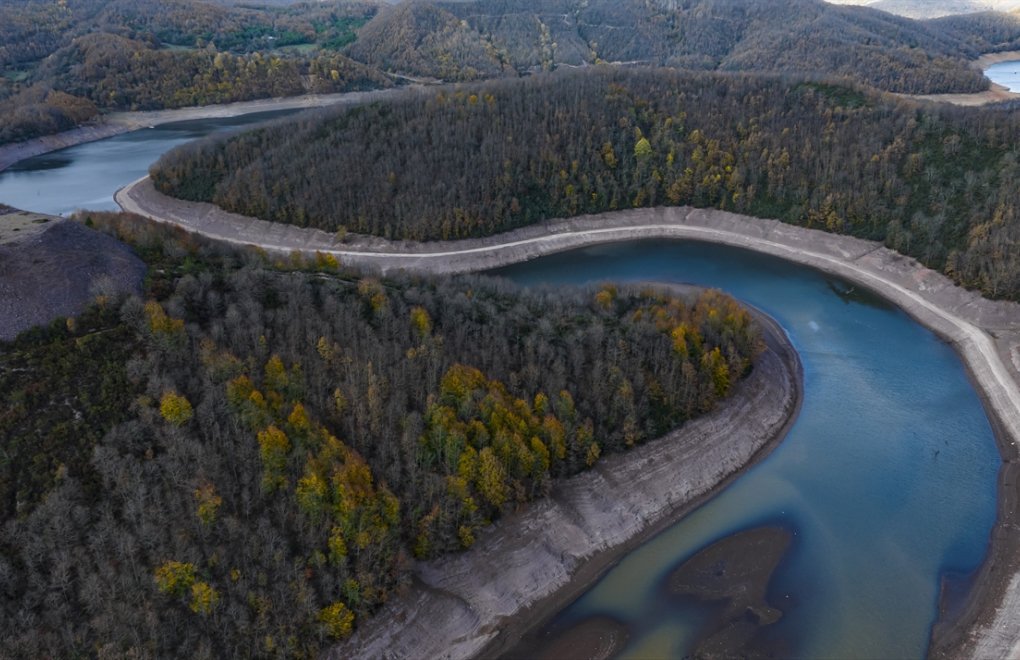Fill rate of İstanbul's dams are at 12-month low

Darlık Dam (Photo: AA)
The fill rate of İstanbul's dams was 35.47 percent in November, the lowest level in the last 12 months, according to the city's Water and Sewerage Administration (İSKİ).
Water storages, such as Kazandere, are only 3.38 percent filled, and the occupation rate of the Şile Darlık Dam, an essential water resource of İstanbul, decreased to 36 percent.
The metropolis, housing around 15.4 million people, currently only holds 308 million cubic meters of water, whereas its maximum storage capacity is 868,68 million cubic meters.
İstanbul's drinking water treatment plants have so far delivered 985.98 million cubic meters to the city, corresponding to a daily consumption average of 3.3 million cubic meters.
Rainfall increased the fill rate of the dams only by 0.07 percent in November, according to the İSKİ.
Water stress and scarcity
Despite being one of the more water-rich countries in the Mediterranean, Türkiye is under water stress, according to a recent UN report.
According to the Ministry of Environment, Urbanization and Climate Change, the current amount of usable fresh water per capita in Türkiye is 1,566 cubic meters, below the water stress threshold of 1700 cubic meters. It is above the 1000 cubic meters water scarcity line.
As reports indicate that Türkiye will increasingly become warmer and drier, the water stress is expected to increase by 30 percent in the next 30 years, according to the World Resources Institute (WRI).
Between 1949 and 2021, the average annual temperature already increased by around 2.0 °C, from 12.6 °C to 14.5 °C. Predictions estimate that Türkiye's temperature will go up by 6.5 degrees in the next 80 years.
In the last decade, some of İstanbul's "mega projects" such as the third Bosphorus bridge, the Northern Marmara Highway, and İstanbul's new airport, have been constructed in the city's wetlands and forests, threatening the city's reshwater basins.
In addition, inadequate water management has also led to significant water losses when transferred from its resource to households. Furthermore, the exact implementation of recent plans to collect rainwater into a 1,000 square meters underground water storage, remains in the dark.
Türkiye's score in climate change index
Türkiye ratified the 2015 Paris Agreement last year and announced new climate plans to combat climate change and reduce greenhouse emissions during the latest UN-organized Climate Change Convention (COP27) in Sharm El Sheikh, Egypt.
However, these plans were met with skepticism by various NGOs, as the country's emissions reduction target would result in an emission increase.
Türkiye scored "very low" in this year's Climate Change Performance Index (CCPI). The country is in 33rd place in greenhouse gas emissions, 49th place on the energy use list, and 62nd in climate policy in the index. (WM/VK)




.jpg)
